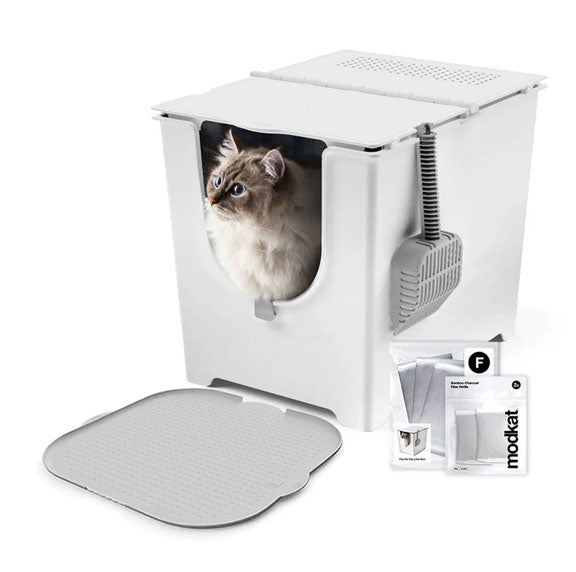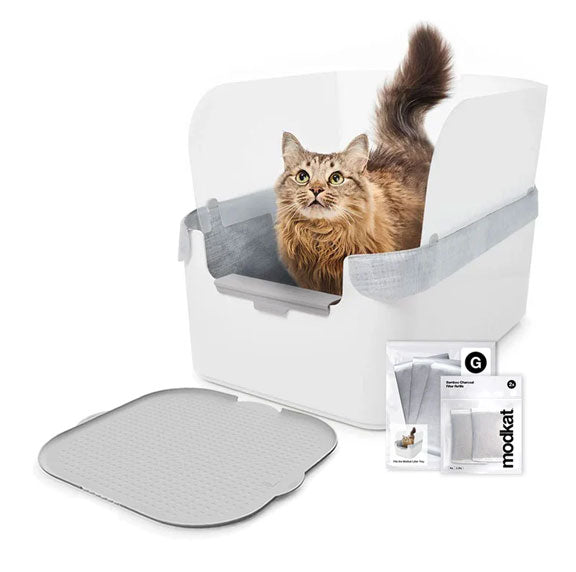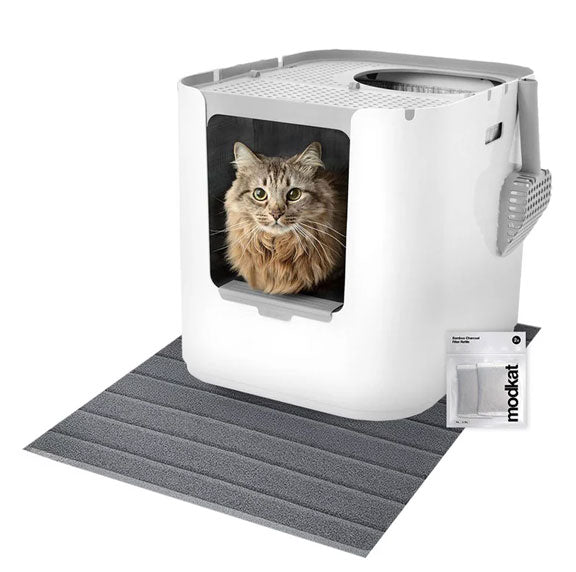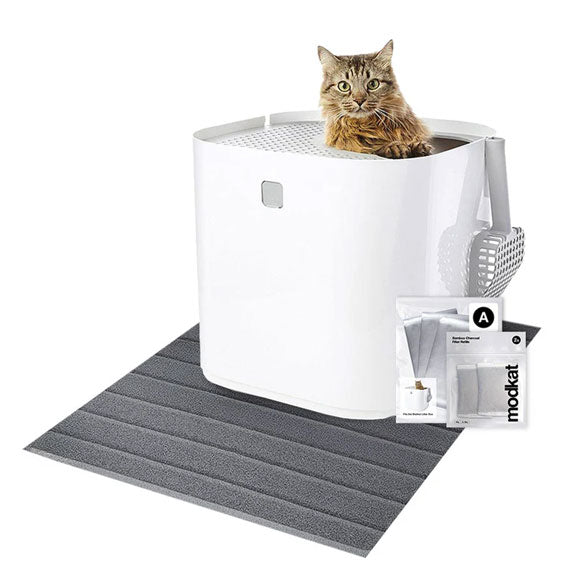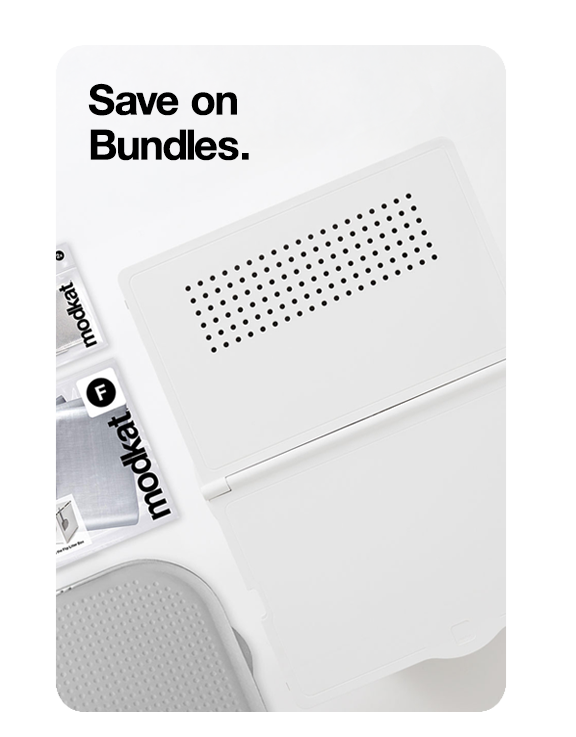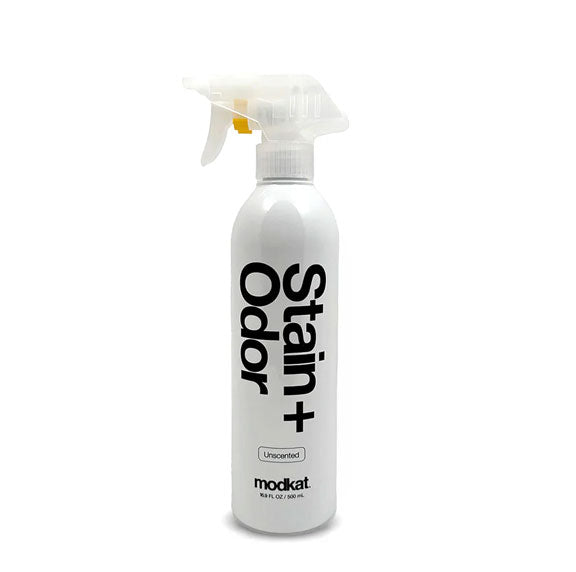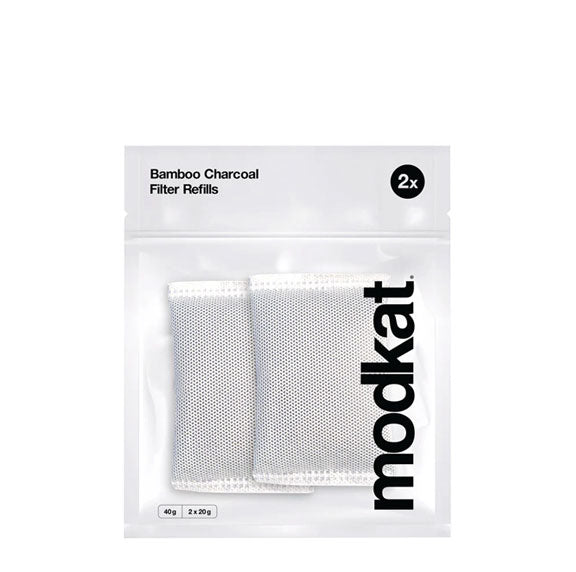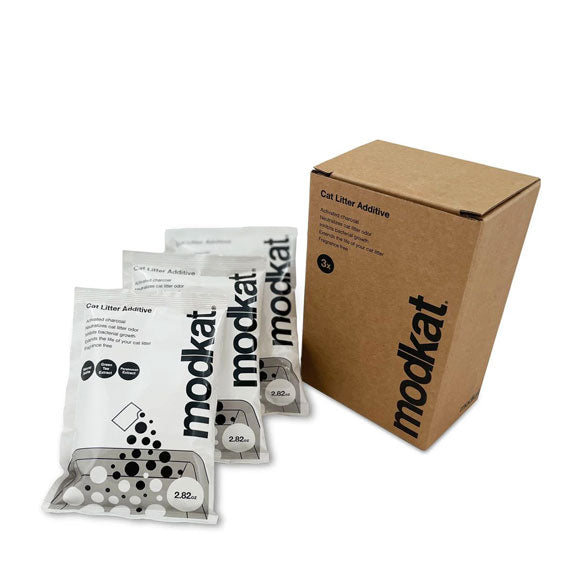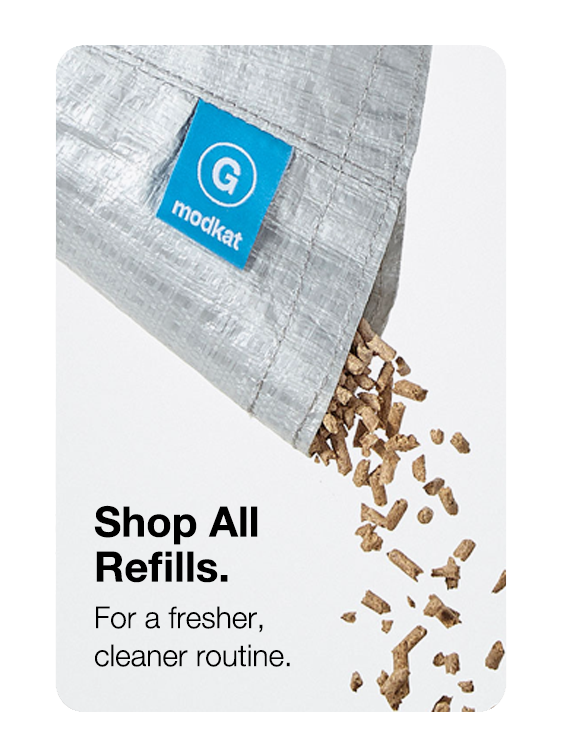20% off sitewide. Discount automatically applied.
20% off sitewide. Discount automatically applied.
Litter Boxes
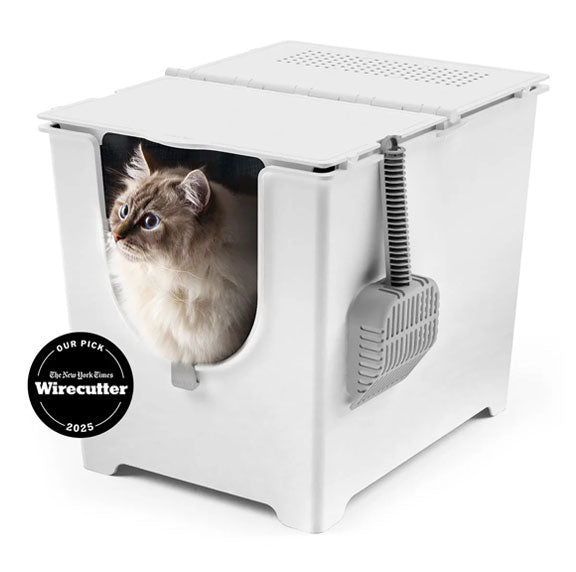
Modkat Flip
Front-Entry Litter Box
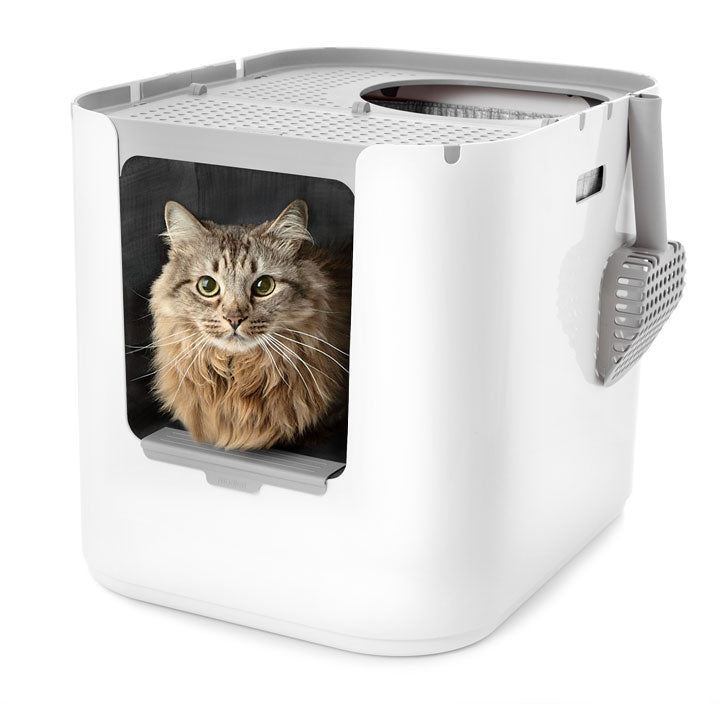
Modkat XL
Front/Top-Entry Litter Box
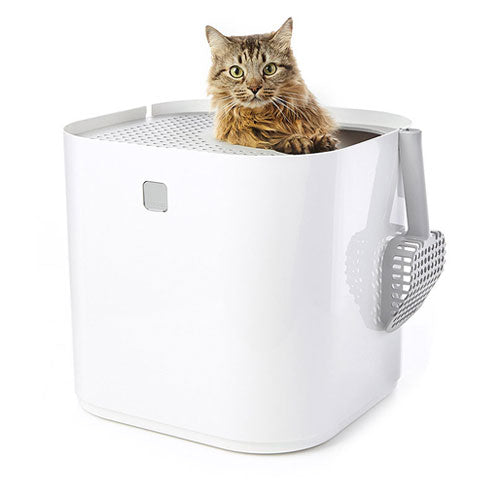
Modkat
Top-Entry Litter Box
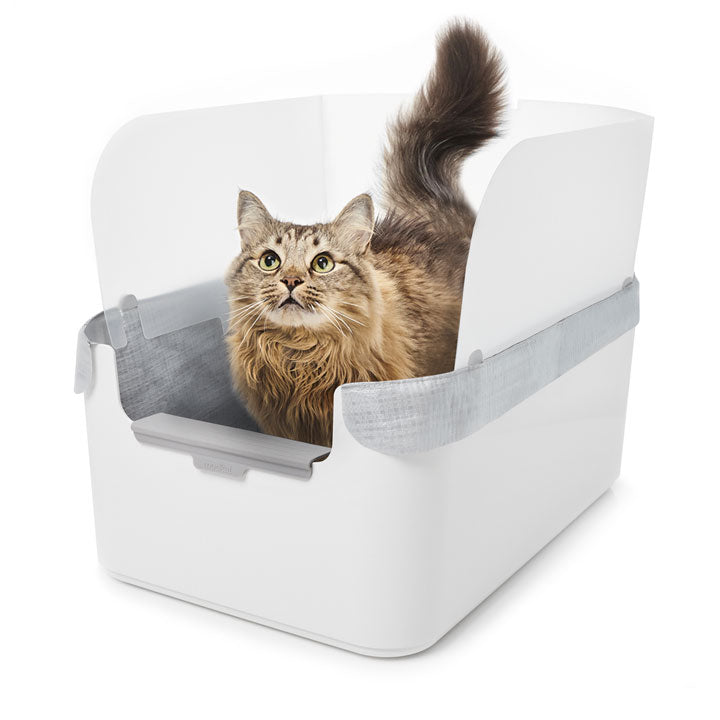
Modkat Tray
Open Litter Box
Bundles
Essentials
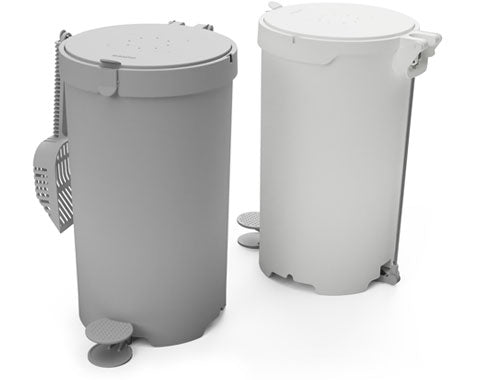
Litter Keeper
Two colors
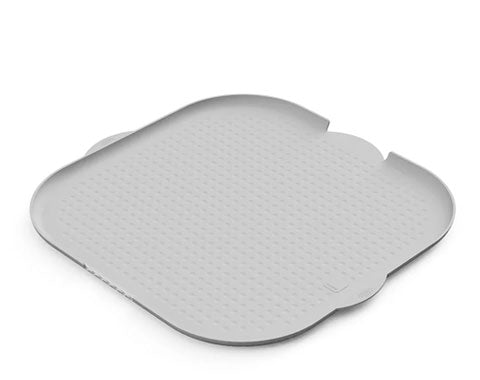
Litter Mats
Multiple styles, colors & sizes
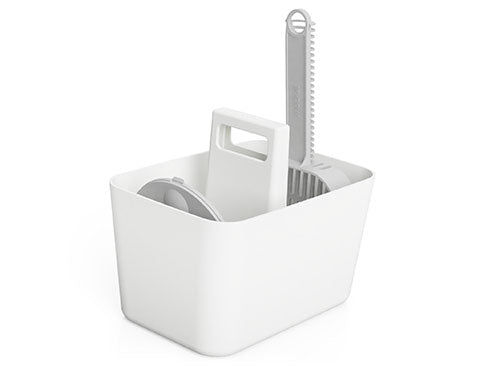
Tidy-Up Kit
Scoop holder & dustpan

Lounge + Play
Scratchers & toys
Refills
Add description, images, menus and links to your mega menu
A column with no settings can be used as a spacer
Link to your collections, sales and even external links
Add up to five columns
Add description, images, menus and links to your mega menu
A column with no settings can be used as a spacer
Link to your collections, sales and even external links
Add up to five columns
5 risks of keeping a dirty litter box.
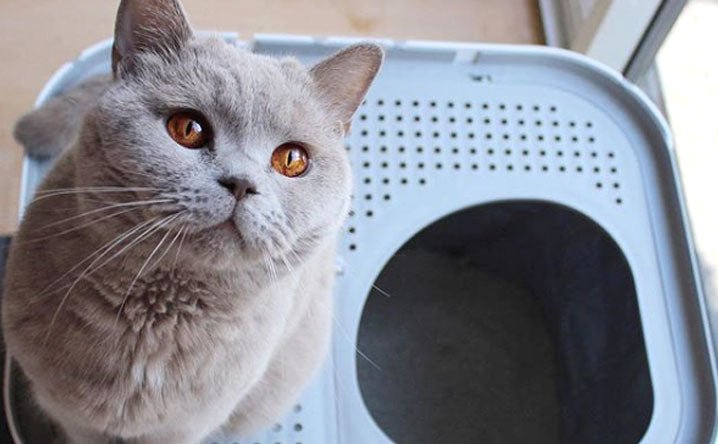
A dirty litter box isn't just gross, it's a health and happiness risk, too. Cleaning out the litter box might be a crappy job, but leaving it undone could make life a whole lot worse. Here are five risks of keeping a dirty litter box:
1. A dirty cat litter box can make humans sick.
Can a dirty litter box make you sick? Yes, living with a dirty litter box can lead to a host of unpleasant illnesses such as these:
Cat Scratch Fever
Just one of the bacterial infections humans can catch from dirty cat litter, Cat Scratch Fever infects about 10,000 people each year, according to the Centers for Disease Control (CDC), and about 500 of those people spend time in the hospital. Children under age nine and people living with weakened immune systems are at a particularly high risk of this disease. You can only get cat scratch fever from a cat, not from another person.
Salmonellosis
Like Cat Scratch Fever, salmonellosis first infects the cat, which may or may not show symptoms, before getting into the human being during the litter box cleaning process. Symptoms include diarrhea, fever, abdominal cramps, and vomiting. Salmonellosis affects about 200,000 people in the U.S. each year.
Overexposure to Ammonia
Breathing in cat urine can actually make you sick. Cat pee is full of ammonia, a toxic gas that can cause headaches, trigger asthma attacks, and even result in serious respiratory illnesses such as pneumonia. Children, older adults, and people with weak immune systems are at particular risk of illness due to overexposure to ammonia.
Roundworms
Parasites make their home in cat excrement. Roundworms, for instance, can pass from cat poop to humans, causing their new host to experience diarrhea, coughing, weight loss, nausea, and more. If you suspect your cat has roundworms, make an appointment with the vet right away, and be extra careful when cleaning out the box.
2. A dirty litter box can also make your cats sick.
Your cat is the one actually staying inside the litter box long enough to conduct business, so it's no surprise that she's likely going to be the first one to get sick. Dirty litter boxes can cause kidney, bladder, and urinary tract diseases in cats. When a kitty squats over a pile of feces, bacteria can travel up the urethra, wreaking havoc all along the way. And since UTIs are often asymptomatic in cats, your kitty could be sick a long time before you know to get treatment for her.
3. Cats won't use a dirty litter box.
Have you ever visited a public restroom so nasty that just the idea of parking your bare behind on the toilet seat grossed you out? Then you know how your cat feels when he steps inside an unclean litter box.
By nature, cats are fastidious animals who obsess about keeping their fur and paws clean. So the idea of using a filthy restroom is just as repulsive to them as it is to us. Besides, cats have a sense of smell 20 times stronger than a human's so...you can do the math on that one.
Will a cat use a dirty litter box? Maybe once or twice, but cats regularly forced to use a dirty litter box will soon take their business elsewhere — your bed, your laundry hamper, or your couch being top options.
4. Toxoplasmosis can pose a dire risk to pregnant women.
One of the most serious dangers cat litter poses to humans comes from toxoplasmosis. Cats can harbor the toxoplasma gondii parasite and excrete it in their feces. If you touch that feces, which you probably will if the litter box is full, you could become infected. Most people show no symptoms, but a few people will experience something like the flu. And pregnant women can experience miscarriage or stillbirth as a result of toxoplasmosis.
5. Your house will stink.
Moldy cat poop doesn't smell good, and the odor will leak throughout the house. A covered box helps a lot, but it doesn't substitute for regular scooping and cleaning. You may not notice the scent yourself after a while, but it's almost guaranteed that your guests, neighbors, or landlord will.
So stay safe and keep your cat's litter box clean. Scoop daily. Change the litter twice a week. Wash the box with soap and warm water weekly. For a more earth-friendly litter box cleaning hack, try mixing vinegar and water instead of using soap. And consider adding a Modkat Odor Filter Kit to keep unpleasant smells to a minimum.
Cleaning the litter box when your eyes, nose, or calendar tells you to is an important part of keeping yourself and your cat in great shape. 🖤🐈
Shop the Modkat litter boxes and accessories to freshen up your cat litter area today!
“It looks nicer than any other hooded or open option we considered.”

Categories
Meow from Brooklyn.
Sign up and get early access to product drops, exclusive offers, and the occasional cat meme.
Similar products related to this blog:
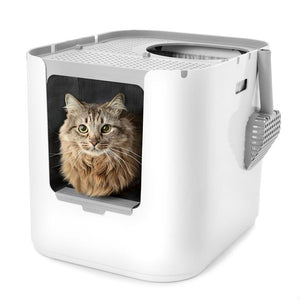
"It looks nicer than any other hooded or open option we considered."

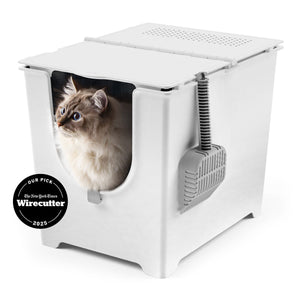
"This litter box keeps everything in, nothing gets out the sides."
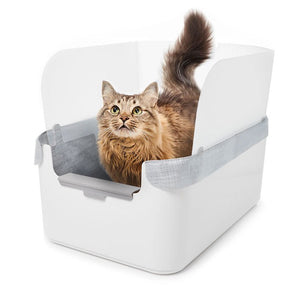
"My beautiful ragdoll cat and I both love the new Modkat Litter tray!"

